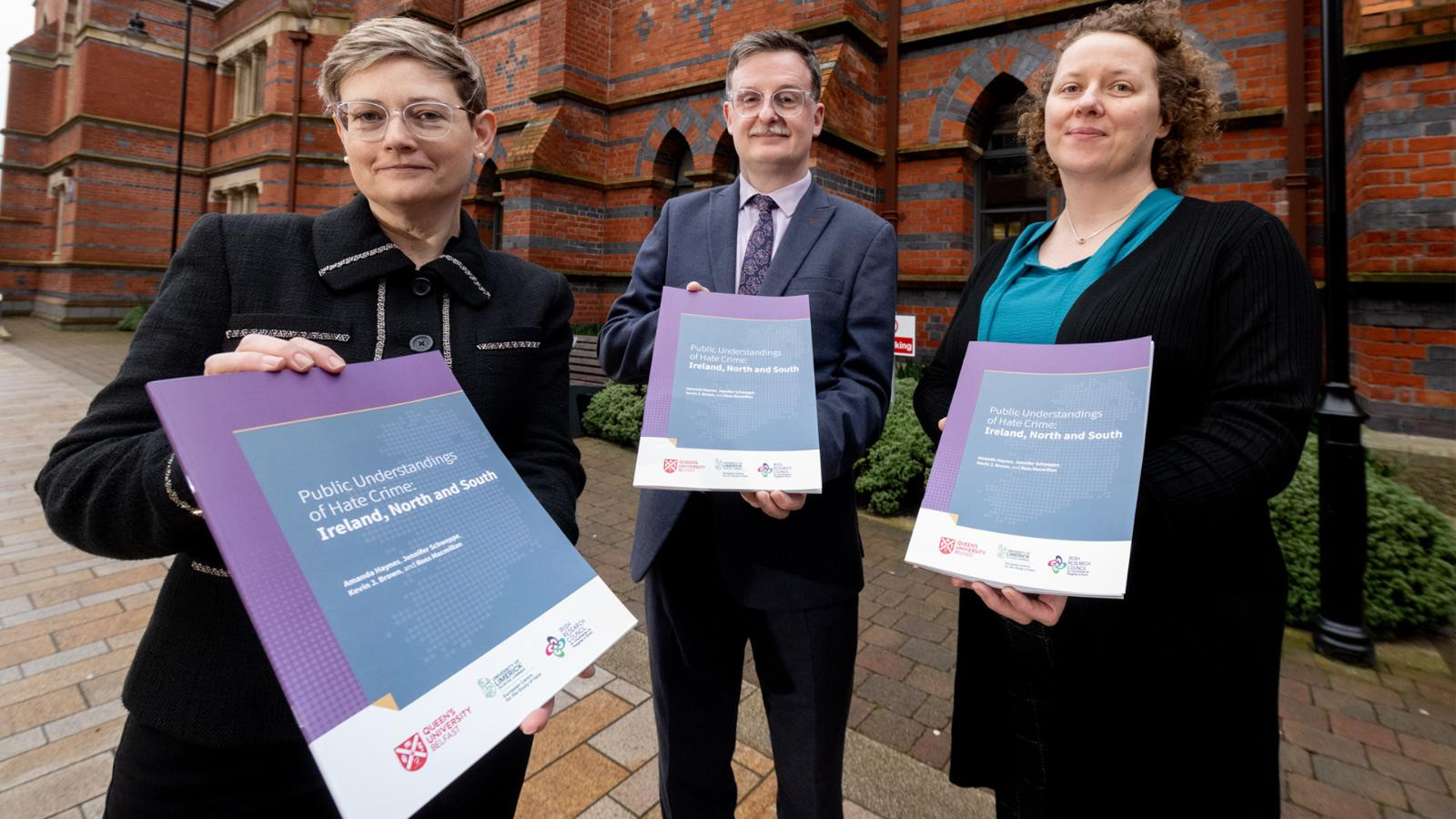Research examines public understanding of hate crime on the island of Ireland

Most people north and south of the border recognise hate crime as a serious problem and support initiatives to tackle it, new research by academics from the University of Limerick and Queen’s University Belfast has found.
The Public Understandings of Hate Crime: Ireland, North and South project was funded by the Irish Research Council New Foundations programme and the Department of An Taoiseach Shared Island initiative.
The research was carried out by Professors Amanda Haynes and Jennifer Schweppe of the University of Limerick’s European Centre for the Study of Hate, Professor Ross MacMillan of the University of Limerick’s Department of Sociology, and Dr Kevin J. Brown from the School of Law at Queen’s.
The researchers found that the majority of the public in both Northern Ireland and the Republic of Ireland believe hate crime to be a serious problem, with a perception that hate crime is increasing on the island.
The general public also understand the direct and indirect harms of hate crime. The majority of the public in both parts of the island appreciate the fact that hate crimes are more likely to have a psychological effect on their victims, and that hate crimes spread fear and isolation among minority communities.
A clear majority of the general public perceive current responses to tackling hate crime to be ineffective. Only 18 per cent of the public surveyed in Northern Ireland thought that the PSNI respond effectively to hate crime, whilst only 20 per cent believe that the courts respond effectively.
There is a high level of public support in Northern Ireland and the Republic of Ireland for the protection of a broad range of characteristics under hate crime legislation.
The study also found that there are gaps in public understanding surrounding current hate crime legislation, with the majority of the public in Northern Ireland incorrectly believing that a hate crime will be recorded as such on an individual’s criminal record.
Speaking about the findings, Dr Brown from the School of Law at Queen’s said: “This survey, the first of its kind on an all-island basis, has much to tell us about public views on hate crime.
“The findings show that a clear majority of the population, North and South, appreciate the harms to victims and wider society that hate motivated criminality can cause. The public perceive current responses to hate to be inadequate and are supportive of changes to allow authorities to more effectively tackle hate.
“This report provides convincing evidence in support of implementing balanced reforms to challenge hate on both sides of the border.”
The report is the first output of the project and establishes the public’s perception of the prevalence of hate crime on the island of Ireland, the physical and emotional harms of hate crime, the impact on minority communities, reporting mechanisms, and the role of legislation in addressing hate crime.
It also measures levels of prejudice against individuals due to their racialised identity, ethnicity, religion, sexuality, gender identity, disability, community background (in Northern Ireland) as well as other commonly targeted identities.








